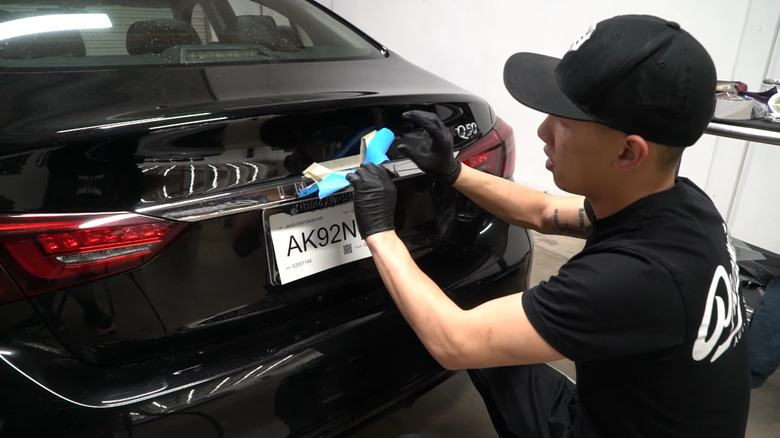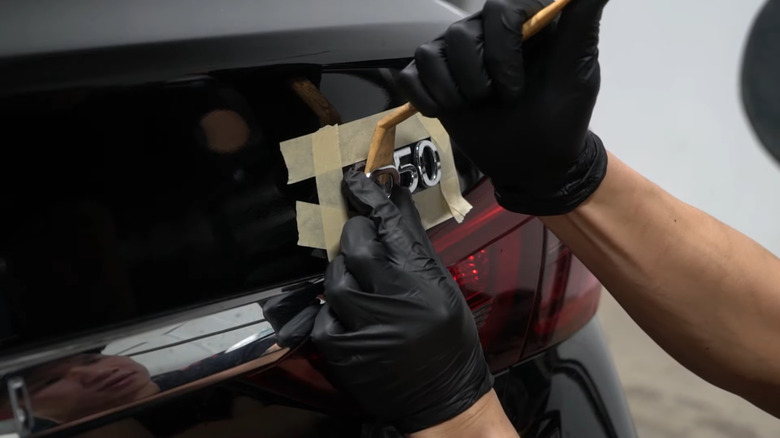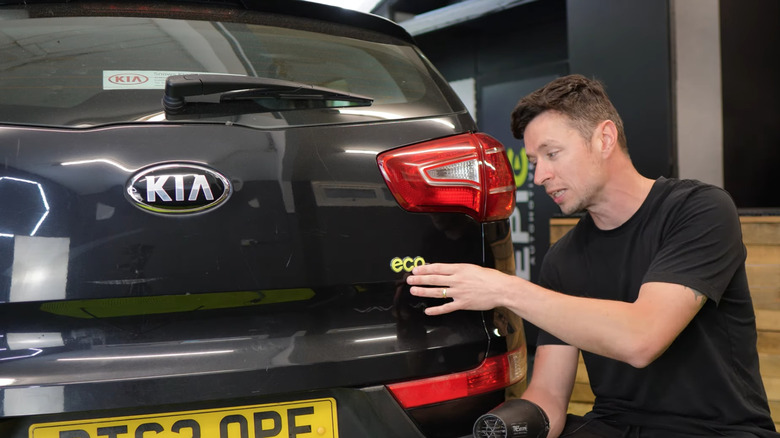Does Debadging Your Car Affect Resale Value?
Debadging is the removal of emblems and logos, some of which have some interesting hidden meanings behind them, from a vehicle's exterior. Car owners typically debadge to achieve a cleaner, more minimal look, reduce branding, or personalize their car's appearance.
The removal of badges from vehicles leads to improved washing and waxing results, because the badges create specific locations where dirt and residue tend to collect. A badge-free design for prestige or luxury vehicles creates a refined appearance that matches that of factory debadging options, which brands like Audi and Mercedes provide to their customers.
Others debadge for practical reasons, such as reducing theft risks by making high-end cars less recognizable. While the modification itself is cosmetic, it's generally reversible with the right tools and adhesive tape, so owners can restore the car's original appearance before selling. That said, it's important to note that improper badge removal can scratch paintwork or leave adhesive marks, which has more potential to lower the value than the absence of badges alone.
Does debadging actually affect resale value?
The short answer is that debadging rarely has a major impact on resale value. Buyers focus on the vehicle's mileage, together with its service history, overall condition, and any recorded accidents. A missing badge would be classified as a small issue, unless it leads to any uncertainty. That's where context matters.
Most standard vehicles will experience a minor decrease in value when debadged, but only if the removal appears unprofessional or if people want to keep the original branding. The removal of badges from prestige or collector cars can create uncertainty about the car's authenticity, because it may suggest that the vehicle has been tampered with to conceal previous damage.
On the other hand, some buyers appreciate the clean look and won't mind at all, particularly if badges are stored safely and can be reapplied. Some cars even look better with a debadge, like in the case of the 2023 Mercedes-AMG SL 43. Ultimately, the impact on value comes down to the individual buyer, but debadging alone is unlikely to significantly alter a car's market price compared to more visible modifications like body kits, neon lights, or performance tweaks.
How to protect value if you debadge
If you plan to debadge but still care about resale value, the best strategy is to do the job carefully and keep the original badges. That way, they can be reapplied later if the next owner prefers an authentic appearance. Using proper methods, like the floss or heat technique, minimizes damage and ensures the paintwork remains intact. Documentation also helps, and keeping records of when the debadging was done, why it was done, and proof of the car's service history can reassure buyers that nothing suspicious was being covered up.
Transparency is key, especially in the prestige market, where authenticity is critical. For mainstream vehicles, debadging is unlikely to hurt value if the car is in good condition overall. In some cases, it can even make a car stand out in a crowded used market. Still, if resale value is your top concern, the safest option is to leave badges in place or make sure the modification is fully reversible. While you are at it, it's probably best to take a look at what mods affect your resale value the most.


